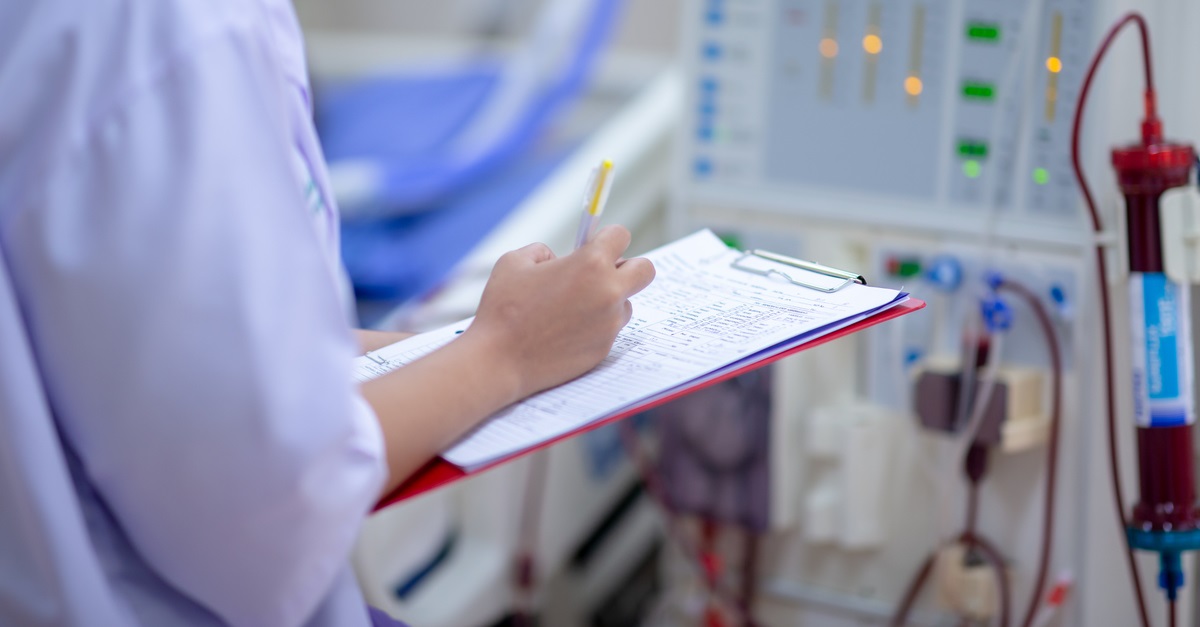
It may seem hopeless when a doctor tells you that you need to undergo an organ transplant. While risky, the procedures have proven to save countless lives all over the world. Being a donor — especially a live donor — is a heroic move that lets you give back to the world in a positive way.
Susan Ellis and Tia Wimbush were both in a similar predicament but didn't realize it. The women worked together in the IT department at Children's Healthcare of Atlanta. During a conversation, they learned that both their husbands had gone into renal failure around the same time. Both of the men were looking for kidneys.
Susan already knew she wasn't a positive match for her husband, but she'd tried her hardest to get on a donation chain. When that fell apart, her situation seemed hopeless.
Susan felt crushed after things fell through. Getting on lists for transplants is harder than it seems. "We were devastated," she told WSBTV-2. But luckily, she still had hope. "We would later find out that God had a better plan," she continued.
In the fall of 2019, the two coworkers started having a chat in the bathroom at work. Since they were both in similar situations, they could relate to each other. But that's when they had a brilliant idea. "We were washing our hands and catching up. I knew Susan was going through the donor process, so I asked how it was going," Tia said.
They realized that while they didn't match their own husbands, they matched each other's husbands. The chances of that are pretty slim, but it seemed like fate. Susan's husband Lance and Tia's husband Rodney seemed very excited about the possibility of a swap donation.
"My thought immediately was that we could help each other and stop the suffering of two families," Tia said to Good Morning America. "I called Rodney immediately and he and I were both just committed to moving forward and trying to help two families." Rodney was new to the process. He'd been diagnosed with renal failure after having high blood pressure.
Susan's husband Lance, however, had been through this once before. Years before, he'd received a kidney from his mother — but he suddenly went into acute renal failure in August 2019 when his body failed to accept the new kidney. That, in itself, is another risk for donors. You never know for sure if something will work out after the surgery.
Lance was also in the midst of dialysis and not feeling well. "There’s nothing easy about it," he told Good Morning America. "When I would get unhooked from that machine, I would feel worse." That made Tia and Susan waste no time when it came to start the process. They knew that they could help each other's husbands start to feel better.
In March 2021, both women underwent the surgery. While the procedure itself was life-changing and a little scary, Tia acknowledged that it was a positive experience since they knew that good would come from it.
"It was a burden being lifted knowing that they were both going to get back to a better quality of life," she said.
But they had a rocky start to the procedure. Lance was unexpectedly hospitalized prior to the scheduled transplant, and then Susan got sick, stalling the procedure. But on March 19, after everyone felt better, the donation between Susan and Tia's husband, and Tia and Susan's husband, was completed.
All four individuals recovered close by each other in the hospital. After the donation, Tia felt very grateful. "It was not as easy as I thought it was going to be, but I'd absolutely do it again," she said. "The feeling that I had after surgery is one that I almost can't describe, just the hope and joy that I felt knowing that my kidney could be a part of the process that helped two people have a better quality of life, after seeing what they've gone through in their kidney disease journey."
While kidney donation is special, you might not realize how important it really is. Right now, there are more than 90,000 known individuals in the United States looking for a kidney. The wait is much longer than you think. Even using a deceased donor, the waitlist is three to five years. So much can happen in that time.
Lance was especially grateful for the procedure, since it immediately affected his quality of life. "As soon as I could get out of bed, Susan took me on a walk and we walked up and down the halls, and it was like out of a fairytale for me," he said. "After being sick for so long, you forget what feeling good feels like. After waking up from that surgery, you feel capable of anything. It's life-changing."
Thanks to that one conversation at work, two men were able to have a healthy second chance at life. And the procedures bonded the couples together for life. "I worry more about Lance than I do myself," said Rodney. "I'll always be grateful to Susan for doing what she did."
If you're inspired by Tia and Susan, you might want to consider being a live donor. Or you can also make sure that you sign a card giving permission to donate your organs after you die. You can save lives, and save families — and perhaps form a bond that will last forever.




